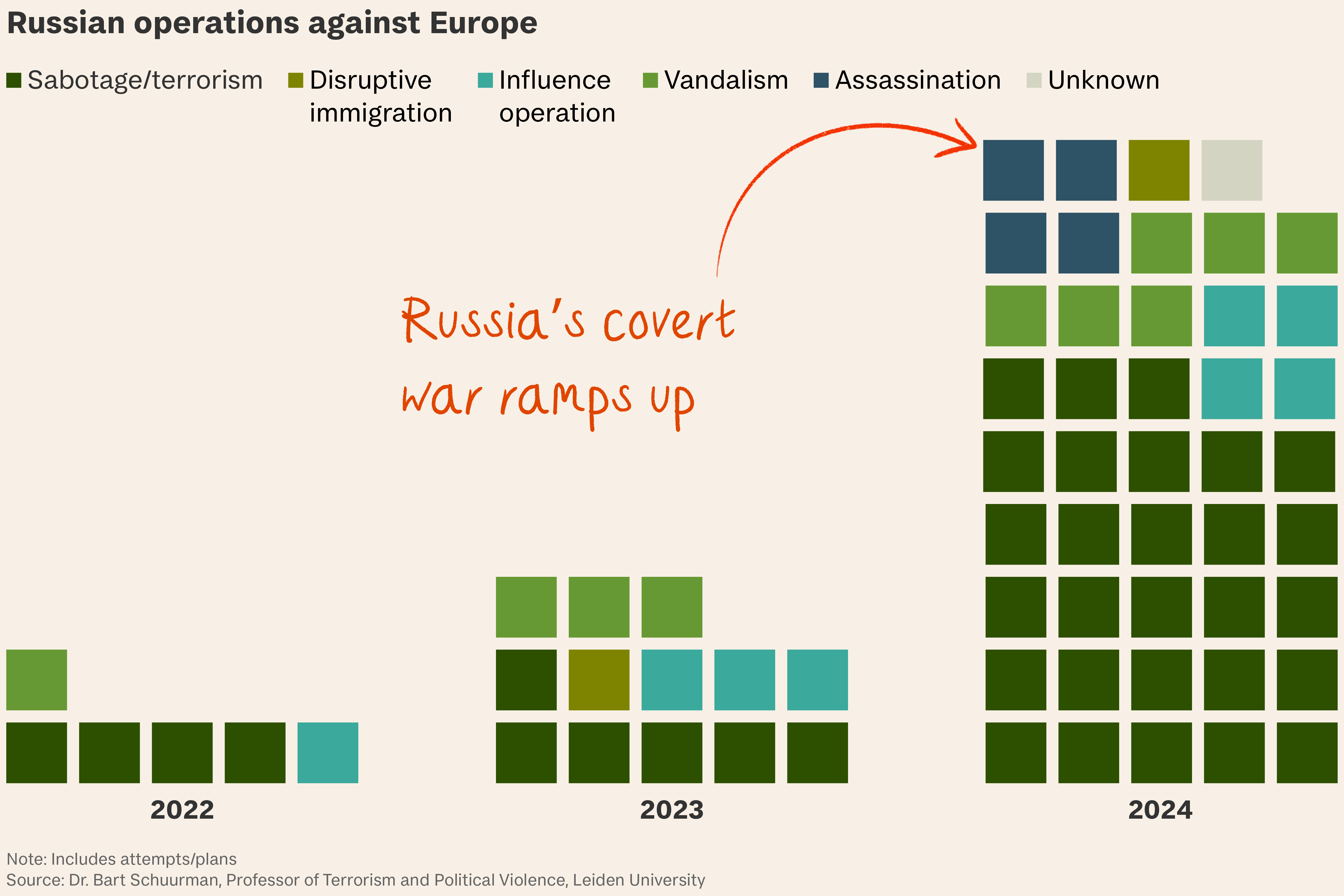
Merz hopes borrowing to rearm will save the “mittelstand”
German bonds suffered their worst day since the fall of the Berlin Wall on Wednesday after Friedrich Merz announced a “whatever it takes” deal to reform the country’s debt rules and spend hundreds of billions of euros on infrastructure and defence.
So what? Rachel Reeves is watching with envy. Merz’ bold plan to exempt defence spending from Germany’s paralysing cap on borrowing has
- lifted economic growth forecasts from close to zero to 2 per cent by the end of 2026;
- sent shares in its domestic weapons makers surging; and
- provided a lifeline to its corroding car industry.
German exceptionalism. A tantrum in the bond markets is a luxury that Reeves, unlike Merz, cannot afford. Germany has a national debt of 62 per cent of GDP, while Britain’s stands at 95 per cent. UK gilts also popped after Merz’ announcement, creating an additional headache for Reeves ahead of her Spring Statement later this month. Having ruled out bending her own fiscal rules or raising tax, the chancellor is rolling the pitch for sweeping cuts to welfare and Whitehall.
Big bazooka. “Both the speed at which this is happening and the magnitude of the prospective fiscal expansion is reminiscent of German reunification,” says Robin Winkler, German Chief Economist at Deutsche Bank. But he cautions that “the geopolitical shift driving today's developments is far less benign than 35 years ago.”
Merz’ package, which includes €500 billion over the next decade to rebuild crumbling infrastructure like the Deutsche Bahn train network, has given a new lease of life to German stocks like
- defense company Rheinmetall AG, which is up 97 per cent year-to-date, having already increased 12-fold since the start of the Ukraine war;
- construction companies Heidelberg Materials and Hochtief, which gained over 14 per cent this week; and
- car maker Volkswagen, which despite recent factory closures and job cuts popped 5 per cent on Wednesday.
Car Keynes? “It is becoming obvious to everybody that defence spending is the way to offset job losses in the car industry,” says Holger Schmieding, the chief economist at Berenberg Bank. Manufacturers are already revamping operations to get a slice of the funds:
- Hensoldt, which makes radar systems used by Ukraine, is in talks to take on around 200 workers from major auto parts suppliers Bosch and Continental.
- Renk, a major manufacturer of tank gearboxes, has talked about scaling production at car factories.
The challenge will be to convert enthusiasm for Germany’s biggest companies into real gains for the Mittelstand – mid-sized firms that employ 60 per cent of the German workforce and are the historic backbone of its economy.
Europe follows? Leaked plans show Italy is also thinking about a militaristic revamp for its struggling car industry. Meanwhile, the UK and France are both rewriting their industrial strategies. But all three have public debt levels close to or exceeding national output and are therefore at the mercy of bond investors.
The solution? Share the debt. Expert suggestions for how to do this include:
- A “rearmament bank”, modelled on the EBRD, which could lend money to both the private sector and to governments for the purchase of military equipment as well as industrial projects in the defence sector.
- A “special purpose vehicle”, letting governments pool national guarantees and borrow capital on the markets, then loan money for defence. (The quicker, “less administrative” option.)
What’s more… Weapons have undergone a major rebrand in the mind of investors. Holdings of defence stocks by environmental, social and governance-focused funds had swollen to €8 billion by the last quarter of 2024, up from €2.7 billion in the first quarter of 2022. Now it’s time for governments to seize the growth opportunity.









